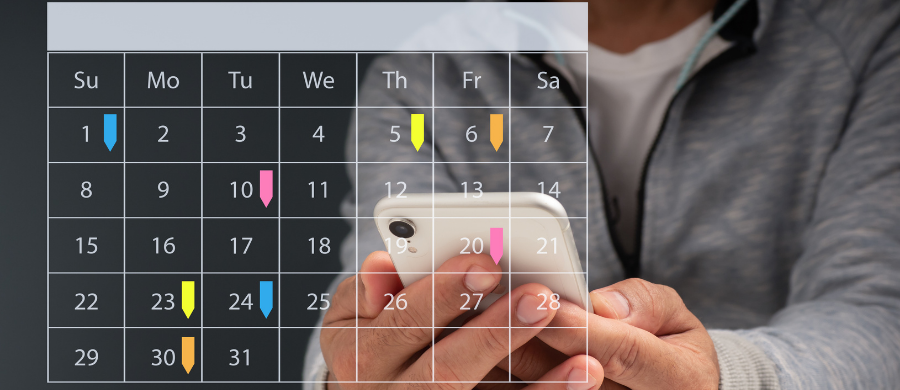Don't miss out on these tips and resources to help you pass your final tests
Subject: Multidisciplinary
Miracle formulas don't exist, but there are recommendations and methods that you can put into practice to prepare for your final tests.
The final tests are right around the corner! To help you pass them, Modesta Pousada, programme Director of the Bachelor's Degree in Psychology and professor at the UOC Faculty of Psychology and Education Sciences, has shared some recommendations that you may find useful.
Plus, we've made it easier to put them into practice by curating a varied list of digital tools, all of which are either open source or have a free version, designed to help you manage your time, review your course content and improve your focus.
In the Library, you'll find a page with specific information to help you with your activities, projects and final tests. You can access it from the Virtual Campus Library button or at biblioteca.uoc.edu.
The study day
According to Pousada, the ideal study day needs planning. First of all, decide how much time you want to spend studying and on break, and set specific goals: what subject are you going to start with and what content, resources or activities will you work on that day?
Likewise, as the professor explains, finishing the study day with a general review, however brief, can help to consolidate learning. A good strategy for doing this is self-assessment: think of some specific questions that could come up on the test and try to answer them. Pousada said: "If we're able to ask several questions on a topic, it surely means that we've grasped it; and if we can answer them correctly, it means we remember the main concepts and ideas."
Another deciding factor for this expert is focus. To avoid distractions, turn off your mobile phone or put it somewhere out of reach and have everything you need at hand before you start studying: a notebook, pen, your classroom resources, notes and so on.
Key takeaways
- Keep your study sessions as short and spaced apart as possible.
- Don't forget to take breaks and go back over what you've done.
- Study the content that is most difficult for you at the time of day when you have the most energy and are most productive.
Useful study tools
Check out this page on the Library website to find a host of apps and websites for:
- Taking notes online.
- Reviewing with flashcards.
- Managing your time with schedules, calendars and management platforms
Could the popular Pomodoro method help you?
This is a time management technique that involves dividing your work or study into 25-minute intervals – each of which is considered one pomodoro ("tomato" in Italian) – separated by 5-minute breaks. Once you've made it through four of these intervals, you can take a longer break of about 15 or 20 minutes.
According to Pousada, this method can help students because it alternates short but intense periods of focus with breaks. She said: "It's easy to use and helps you get organized since these periods are already more or less set, although they can be adapted slightly."
Check out the focus and productivity tools in the Library, such as timers based on the Pomodoro technique.
Tips for remembering what you've studied
According to Pousada, making concept maps, outlines or summaries can help you better understand key concepts and describe what you've read in your own words.
If you have to remember a list of items, such as a set of characteristics or the stages of a process, the professor recommends using acronyms or other mnemonic devices. And, so as not to confuse courses or topics that have certain similarities, you can use different coloured markers or pens.
Explaining to someone what you've learned is also a good way to study because it requires you to have first grasped the concepts. One option is to study with your classmates to discuss questions as a group, solve exercises and do activities together, and comment on them.
To manage anxiety at moments of maximum tension (just before or during the tests), you can practice simple muscle relaxation, breathing or visualization exercises, which will help you to control your anxiety and avoid spiralling.
Go to this page on the Library website for:
Tools for making mind maps and putting your ideas in order, tying concepts together and displaying them visually.
Information on study techniques.
Find out what the tests will be like
You can find out what the final tests are like before taking them; this page has all the information you need. There's a simulator that shows you how the test room works and what steps you will need to follow. We also cover the hardware and software requirements.

